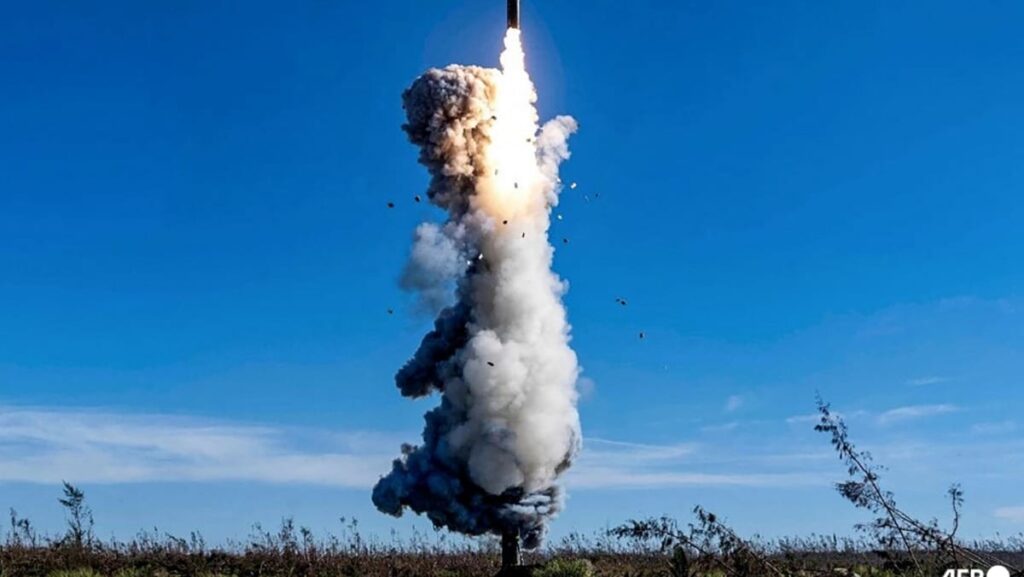SINGAPORE: China’s rare intercontinental ballistic missile (ICBM) test last month in the South Pacific – its first in 44 years – has raised questions over Beijing’s strategic ambitions.
The sudden announcement on Sep 25 by China’s defence ministry came less than two hours after the launch of the ICBM at 8.44am from Hainan. It was reported by Chinese state media as having met the objective when the missile “fell into expected sea areas”.
Although not indicated explicitly, media reports in French Polynesia indicated the projectile landed near the territory’s economic zone.
Having travelled more than 11,000km from its launch site – double the 5,500km range of the most basic ICBMs – the offending object, likely the Dong Feng-31AG (DF-31AG), was loaded with a dummy warhead rather than the 1-megaton fissile material this type of missile is designed to carry.
If the ICBM in question was indeed a variant of the DF-31 – which first entered service almost two decades ago – as opposed to the newer, more advanced DF-41, the decision to fire the older (meaning it is more stable), but nevertheless potent, weapon can perhaps be interpreted as Beijing prioritising a more reliable means to signal its martial prowess to the United States and its allies in the Indo-Pacific.
As well as claiming the test was “routine” and not directed at any country, Beijing was lauded by some US officials for giving the Pentagon advance notice to avert misperception and miscalculation.
France, Australia and New Zealand have also said that they were given advance notification of the test. Accordingly, the information would have been conveyed by some of them to their counterparts in the region as well as relevant authorities operating in those waters and airspace. At the same time, Japan and the Philippines were alerted a few days prior to the launch of possible “space debris” landing at sea, although it is unclear if they were directly informed about the ICBM test.
Still, not everyone who believe they had a right to know was impressed. For one, the president of Kiribati criticised the Chinese government for neglecting to inform the Pacific Island state, and further alluded to the test as a threat to “world peace and stability”. In response, China’s embassy there stated “there was no need to alert Kiribati” since the test targeted no one in that part of the world.
The relative dearth of advance strategic messaging in this episode is in stark contrast to the previous time the People’s Liberation Army (PLA) fired an ICBM into the Pacific Ocean.
In order to grasp the circumstances behind the latter, one needs to go back to a time when China had just emerged from the excesses of Mao Zedong’s Cultural Revolution as his successors sought to reintegrate the country with the global economy.
Read the full article here

